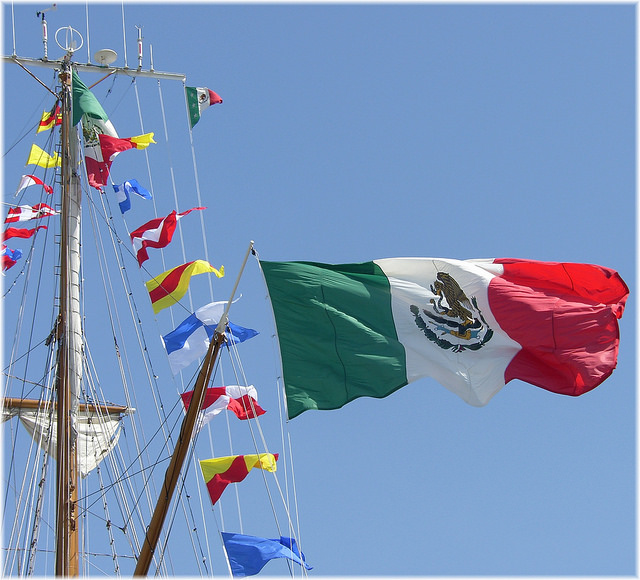At the Investec Global Insight Conference 2015 being held in London last month, Henrik du Toit, CEO of Investec Asset Management, outlined the company’s vision for the environment in which we currently operate by stating that investors must stop being locally biased to become true global investors.
The South African firm’s assets are a good example of this approach. With offices in Cape Town, London, Hong Kong, and Singapore, and US$120bn in assets under management, they are the only asset management company originating in an emerging country, which plays in the big fund managers’ league. Moreover, its assets under management are equally divided between developed and emerging markets.
Richard Garland, Managing Director for the Global Advisory business at Investec AM, pointed out that the firm has seven investment teams with unique investment philosophies, offering a varied range of products, with a dynamic and business oriented corporate culture which is fully aligned with the needs of their clients.
Proof of this is that 15% of the company is held by the company’s key employees, including all senior professionals involved in the investment process. In addition, portfolio managers invest a significant amount in the funds they manage, to ensure that their goals are fully aligned with the other investors in the fund.
Garland acted as Master of Ceremonies on the conference; Du Toit, the company’s CEO, gave a broad overview on key points of the business, to make way for the speech by James Hand, co-director of the 4Factor Equity team, and a presentation by Michael Power, strategist for the firm, on the “Collision of Two Worlds,” developed and emerging, and its impact on investment portfolios.
Undisputed Protagonists: Emerging markets
Du Toit claimed that, with the arrival of new economies into the global arena, we have embarked on a journey in which the world is changing. He stated that one cannot be left out of the process of wealth creation that is occurring in emerging markets, and that although right now their role is under question, their protagonism is indisputable in the long term. For the company’s CEO, the best advice is to invest with a global focus rather than a country-by-country one.
Power, strategist for the firm, said that deflation is the main issue that any investment portfolio has to deal with. Overheating in the developed world is being offset by the deflationary influence from the emerging markets, which are able to produce at much lower costs due to their specialization and the low cost of labor. Thus, according to Power, the price deflation process suffered by Japan since the nineties is now also affecting the United States, and Europe even more so, as they are also facing a serious demographic problem, “Europe needs more babies,” he said. In fact, Asia is taking the jobs of the Western world, and the institutions in developed countries have reacted by cutting rates, encouraging credit, and increasing spending.
In this environment, Power urges investors not to turn their backs on the economies that are generating wealth. If Korea and Taiwan stole the limelight from Japan in the nineties, creating its problem of deflation, this century China has taken over, and now “we can even envision that ASEAN countries could be replacing China in this process” Power says. In short, and in the words of this strategist, “the white man has lost his job in favor of an Asian woman,” a difficult reality to digest.
What to do in this environment? Power recommended to those investors and advisers present, to prepare portfolios for capital preservation in a deflationary environment, which is going to continue. “The type of high-quality companies in which the Investec Global Franchise strategy invests are a good choice; also invest in bonds and cash, making sure it is in the appropriate currency; equities and Asian fixed income are also interesting, as well as certain private sectors in the United States, such as pharmaceuticals.”
Asian Equities and Value Stocks are Cheap
Several 4Factor Investec investment team members, as well as portfolio managers for the Asian Equities and Fixed Income teams, gave their views on various sectors and investment styles in two panels. One of these concentrated on developed markets and the other one on China. One of the conclusions in relation to developed markets is that even though there is a somewhat more attractive valuation in value stocks, perhaps it is too soon to embark into overweighting this asset class. However, the quality factor, although in higher ratios, is offering opportunities in companies with high generation of free cash flows which justify their prices. “Those stocks with free cash flow yields higher than 5.5% which grow by around 8% annually, mark the path to success,” Clyde Rossouw, co-director of the Quality Factor, pointed out.
James Hand, co-director of the 4Factor Equity team, analyzed the situation by markets, styles, and sectors, concluding that looking at the valuations, the picture shows that emerging markets, Asia, and value stocks are cheap, while by sector, valuations are low in cyclicals versus defensives, “but at the moment, you have to be willing to buy in these markets, which are cheaper, without any evidence that the fundamentals are improving, so unfortunately there is no clear answer” .
The event counted with a stellar presentation by Francois Pienaar, former captain of South Africa’s national rugby team in 1995, year when the team won the World Cup. Pienaar, played by Matt Dillon in Invictus, the film production directed by Clint Eastwood, shared with the audience his sporting and human experience when leading his team to victory at a time when the country was taking its first steps towards democracy. “My main criticism of the film is that in it, I had a disproportionate leading role, the victory in the Rugby World Cup was the work of the whole team,” Pienaar assured. He also shared the inspiration which the team always received from Nelson Mandela, who clearly understood from the onset the power which sport has to unite a people who at that time were divided. “From him, I obtained the motivation to make the world a better place, starting from your own home, your street, your neighborhood, your circle of friends, your city, and your country,” he concluded.

 By Fórmate a Fondo
By Fórmate a Fondo